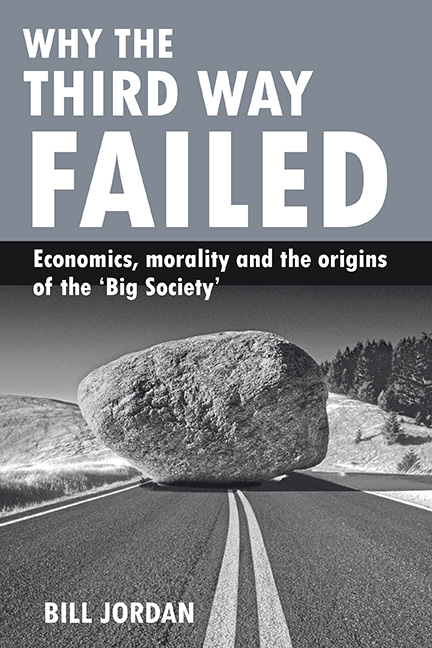three - Nature, science and cosmology
Published online by Cambridge University Press: 01 September 2022
Summary
In this chapter I turn to a more fundamental failure of the Third Way – its inability to recognise and challenge tendencies in global capitalism that threaten future well-being. This is certainly not the Third Way’s failure alone, but I argue that its understanding and response to these threats has been mistaken and misleading; a new way of thinking, and a new policy response, is urgently required. The obvious manifestation of this inadequacy is the coming environmental catastrophe, but the issues are broader and deeper even than this.
When the first Third Way regimes came to power in the early 1990s, ecological questions were still seen as marginal to mainstream politics. With the honourable exception of Al Gore (1992), they did not figure prominently in Third Way literature; for instance, Tony Blair's (1998a) essay, The Third Way: New politics for the new century, made no mention of them, and referred to ‘boosting the science base’ as ‘a key government priority to keep Britain internationally competitive’ through a ‘pathbreaking public-private partnership’ (p 10).
In so far as environmental threats were recognised by Third Way thinkers, these were analysed within the framework of a ‘risk society’ (Beck, 1992). The combination of global economic integration and the individualisation of everyday life – each relying more on active choices over friends, networks and associations, rather than on tradition, habit and community – exposed people to risks which were difficult or impossible to measure and assess (Giddens, 1991, 1994). Global production gave rise to environmental risks which were qualitatively different from the more localised ones associated with earlier phases of capitalism – their effects were often invisible, pervasive and long term.
The paradigms for such risks in the early 1990s were the BSE scandal in the production of beef and bio-engineering, notably GM crops (Giddens, 2000, pp 136-45). These examples indicated that risks might be present before scientific evidence was available to guide individual decisions, so the self-reliant consumers who made up modern societies were unable to make rational choices about even such banal items.
The Third Way's response to this analysis of risk in all such issues was to argue for ‘environmental modernisation’, which aimed to reduce the harmful impacts of degradation and the distortion of natural processes.
- Type
- Chapter
- Information
- Why the Third Way FailedEconomics, Morality and the Origins of the 'Big Society', pp. 63 - 84Publisher: Bristol University PressPrint publication year: 2010



